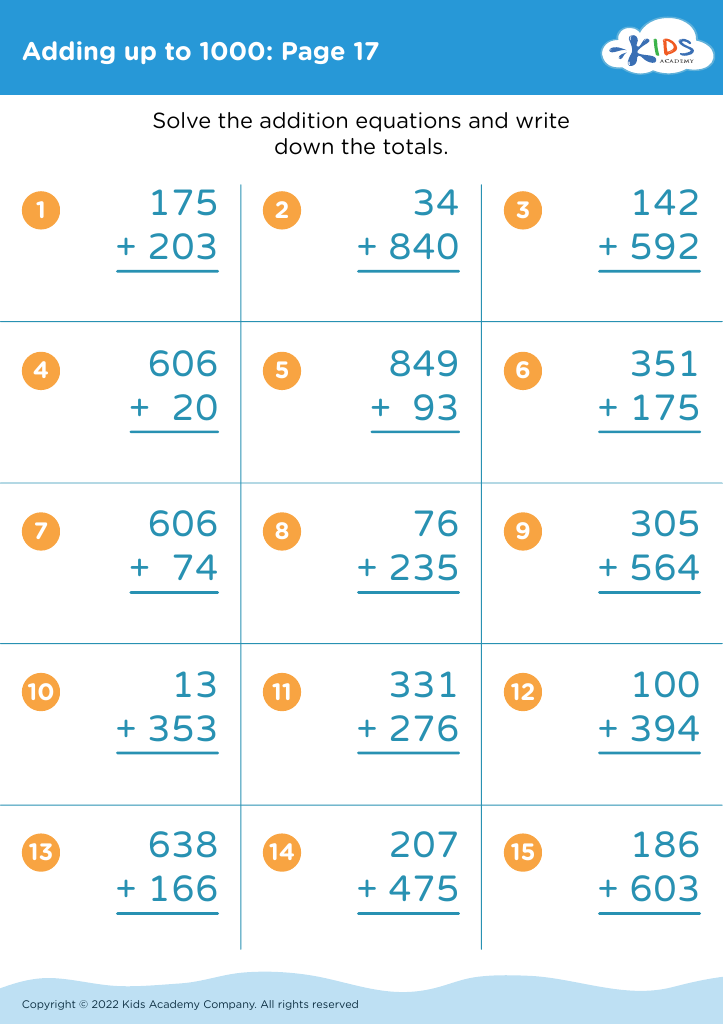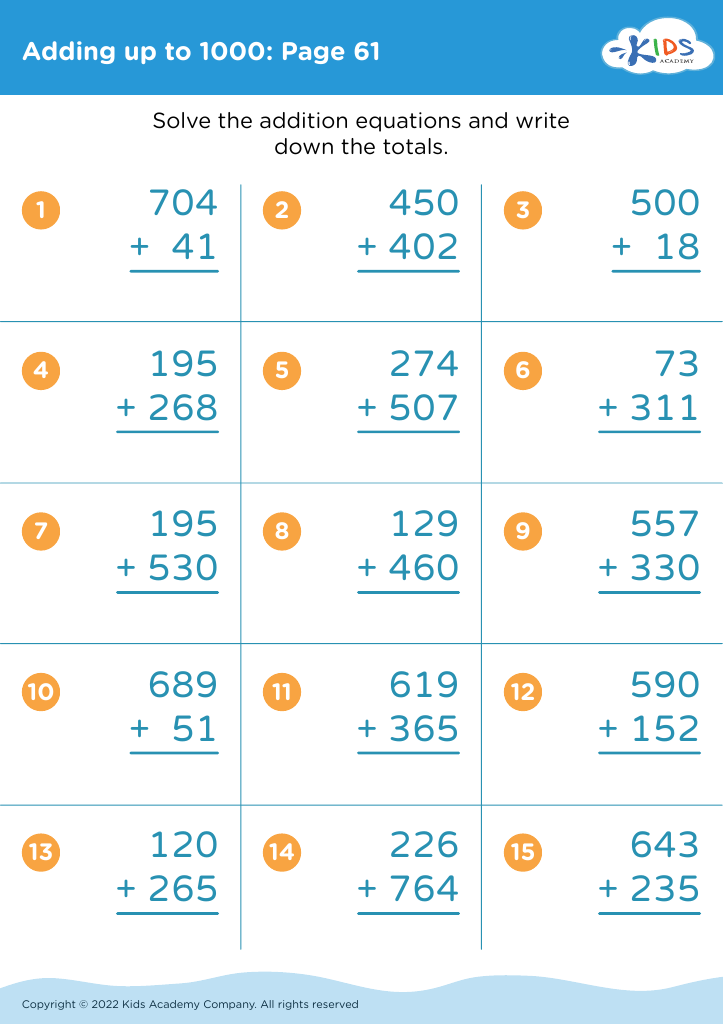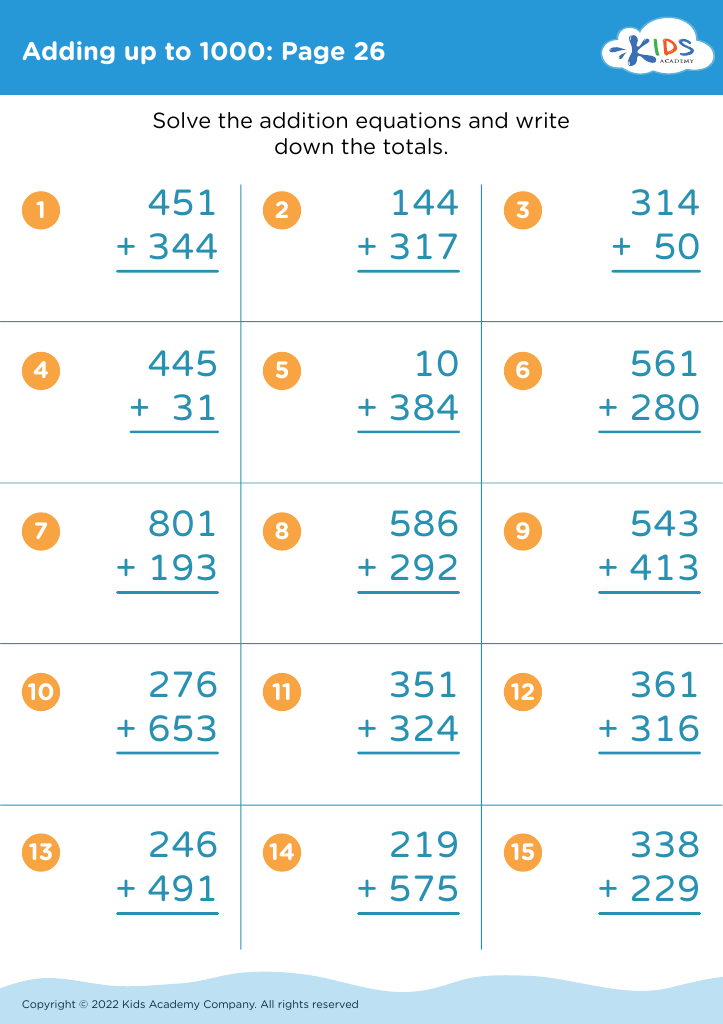Basic Math Skills Adding up to 1000 Misc Worksheets for Ages 5-8
3 filtered results
-
From - To
Unlock your child's potential with our "Basic Math Skills Adding up to 1000 Misc Worksheets" designed for ages 5-8. Explore a variety of engaging activities that enhance foundational math abilities by focusing on addition up to 1000. These worksheets are tailored to young learners, ensuring they build confidence and proficiency in math. Through fun and interactive exercises, children will develop essential skills like number sense, problem-solving, and computational fluency. Ideal for both classroom and home use, our resources make math practice enjoyable and effective. Set your child on the path to math success today with these comprehensive, high-quality worksheets!
Basic math skills, such as adding up to 1000, play a crucial role in the foundation of a child's academic development and everyday life. For children ages 5-8, mastering these skills is essential for several reasons. Firstly, early proficiency in basic math enhances cognitive development, including numerical reasoning and problem-solving abilities. These skills are not only vital for higher-level math but also beneficial across various subjects, promoting overall academic success.
Secondly, a solid understanding of fundamental math instills confidence and reduces math anxiety, encouraging a positive attitude towards learning. Children who grasp basic math concepts early are less likely to experience fear or frustration when confronted with more complex problems later on.
Moreover, math is ubiquitous in daily life; skills like addition are used in various real-world scenarios, such as shopping, cooking, and time management. By learning these skills early, children develop the ability to make informed decisions, manage their finances effectively, and engage in logical thinking.
Lastly, fostering math skills in young children paves the way for their future in a world increasingly driven by STEM (Science, Technology, Engineering, and Mathematics) fields. Early math competence opens doors to numerous career opportunities, promotes analytical thinking, and equips children with essential life skills. Therefore, parents and teachers should prioritize basic math skills to ensure a well-rounded, successful future for their children.

















